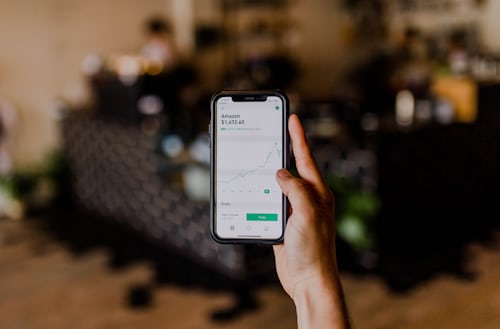
Now that you know the basics of online trading, you need to think about the type of trading strategies that you want to employ. This can usually be broken down into three categories - this depends on how actively you want to trade.
Day trading
As the name suggests, day traders rarely hold on to an open position for more than a day. Instead, traders buy or sell an asset and unload it later in the day.
The position may stay open for a few hours or even minutes, depending on the trade-in question. Day traders typically place dozens of trades per day and strive to make ultra-small profits.
Swing trading
Here is good explanation of Swing trading from forex-exness: "การซื้อขายแบบสวิงนั้นแตกต่างเล็กน้อยจากการซื้อขายแบบวันต่อวันซึ่งนักลงทุนมักจะเปิดตําแหน่งเป็นเวลาหลายวันต่อสัปดาห์. ตัวอย่างเช่นผู้ค้าใน ดาวน์โหลดแพลตฟอร์ม Exness อาจสั่งซื้อซื้อบน Apple เพื่อตอบสนองต่อรายงานผลประกอบการที่ดีกว่าที่คาดไว้. ผู้ค้าจะพยายามเพลิดเพลินไปกับแนวโน้มขาขึ้นระยะสั้นแล้วออกจากการค้าเมื่อปรากฏว่าแนวโน้มเริ่มตาย."
"Swing trading differs slightly from day trading in that investors often keep a position open for several days into weeks. For example, a trader might place a buy order on Apple in response to better than expected earnings reports. The trader will try to enjoy a short-term uptrend and then exit the trade when it appears that the trend is beginning to die out."
Long-term trading
In long-term trading, investors will hold the asset for a few months or years. This is usually suitable for passive investors who want to make consistent, long-term gains.
For example, you might decide to buy £5,000 worth of BP shares and sell them four years later at a (hopefully) higher price. During this process you will also receive passive income in the form of quarterly dividends.

How to start trading online today
If you've read our guide up to this point, you should now know exactly how online trading works. If so - and you can start trading right away - we've put together a simple step-by-step guide below to help you get started.
Step 1: Find an online trading site
You first need to find an online trading site that meets your long-term investment goals. The broker in question should be highly regulated and offer plenty of tradable instruments.
It should also offer tight spreads, low commissions and allow you to deposit and withdraw money easily. If you don't have time to find an online trading site yourself, you can find our top five rated brokers at the bottom of this page.
Step 2: Open an account and verify your identity
All online trading sites require you to open an account. Therefore, you will need to provide some personal information.
This includes your:
- Name
- Home address
- Nationality
- Date of birth
- National tax number
- Contact
You will also need to verify your identity. On most online trading sites, you can do this by quickly uploading a copy of your passport or driving licence.
Step 3: Deposits
You now need to fund your online trading account.
Commonly supported payment methods include:
- Debit cards
- Credit cards
- Skrill
- Paypal
- Neteller
- Bank transfer
You should also check what the minimum deposit is and whether there are any fees for your preferred payment method.
Step 4: Place your order
Once your online trading account is funded, you can place your first trade. Browse the many financial instruments the broker supports to get the ball rolling.
If you have a particular asset in mind, search for it. For example, if you want to trade Apple shares, type "Apple" into the search box and click on the relevant result.
Once you are on the appropriate trading page for your chosen asset, you will need to place an order.
- Buy Sell: Choose from a buy (long) or sell (short) order.
- Share: Enter the amount you wish to trade
- Market / Limit Order: Choose a market order if you want to get the next available price. Choose a Limit Order if you want your trade to be entered at a specific price.
- Leverage: Select your multiple if you want to apply leverage.
- Stop Loss: Set up a stop loss order to limit your potential losses.
- Take Profit: Set up a take profit order to lock in your potential profits.
Once you have confirmed the order, it should be executed within a few seconds. If you have opted for a limit order, this will only happen when your entry price is triggered.



